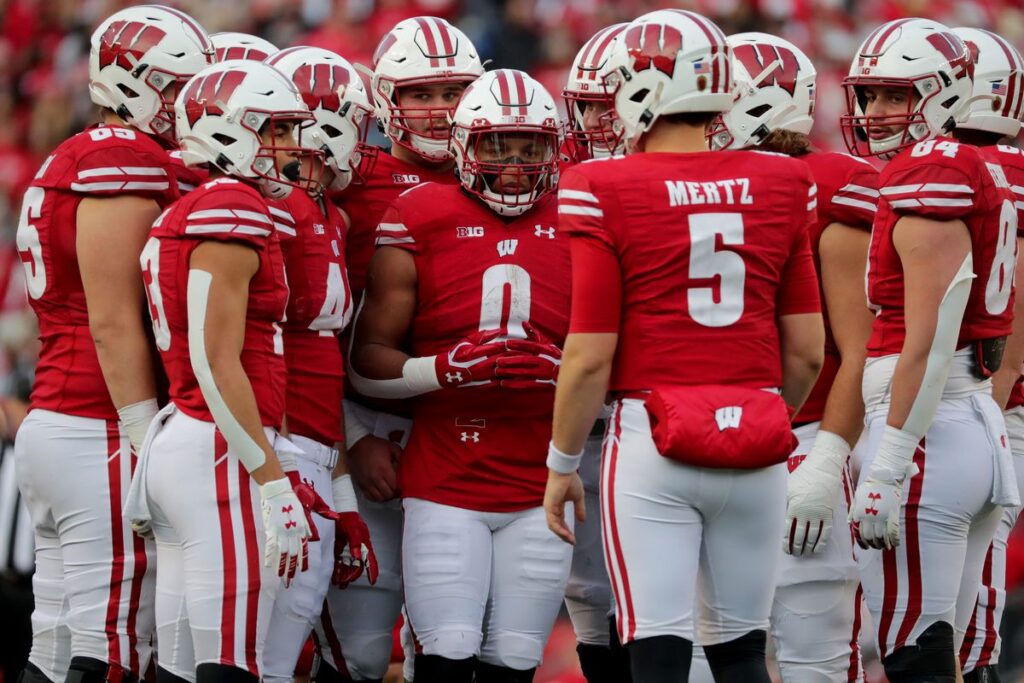Team History
The Wisconsin Badgers football program is steeped in tradition, with roots reaching back to 1889. This makes them one of the oldest collegiate football programs in the United States. The Badgers have competed in the Big Ten Conference since its inception in 1896, and their history reflects the conference’s own growth and dominance in the world of college football.
Over the years, the Wisconsin Badgers have experienced significant periods of success, marked by conference championships, bowl game victories, and the development of legendary coaches and players. However, there have also been rebuilding phases and transitions as the landscape of college football continuously evolves. The program’s longevity and ability to navigate these changes are a testament to the deep-rooted passion for Badger football within the state of Wisconsin.
Foundation and Early Years
The Wisconsin Badgers first took the field in 1889, playing their inaugural game against the Whitewater Normal School. The early years were turbulent, with inconsistent seasons and a revolving door of coaches. However, the Badgers began to find stability in the early 1900s, developing a strong regional reputation.
The hiring of Philip King as head coach in 1925 ushered in a period of growing success for the Badgers. Under King’s guidance, an emphasis on a punishing ground game laid the foundation for the Wisconsin style of football that would be embraced by future generations. King’s tenure set a standard for success, and the echoes of his emphasis on physicality can still be seen in modern Badger football teams.
Notable Early Achievements
The Badgers claimed their first Big Ten title in 1912. However, it was during the King era that Wisconsin truly emerged as a force. More Big Ten championships followed, the program developed its first All-Americans, and a sense of Wisconsin football identity began to crystallize.
One of the standout moments in the Badgers’ early history occurred in 1942 when they achieved their first-ever Rose Bowl victory. The triumph cemented their status as a national contender and helped put Wisconsin football on the map. This Rose Bowl win was a watershed moment, establishing a tradition of pursuing excellence at the highest levels of competition.
Periods of Change
Like many historic programs, Wisconsin has weathered ups and downs. The decades following King’s retirement saw a mixture of winning seasons and periods of mediocrity. However, the Badgers experienced a major resurgence in the 1990s under the legendary coach Barry Alvarez. Alvarez transformed the program, built a winning culture that elevated Wisconsin to consistent contender status within the Big Ten, and ultimately set a new standard of success.
The transition following Alvarez’s tenure brought further change. Coaches such as Bret Bielema and Paul Chryst maintained success with varying philosophies. The Badgers continued to be a tough, physical team known for its powerful running backs. Most recently, in 2023, Wisconsin hired Luke Fickell from Cincinnati to usher in a new era of Badger football. Fickell’s arrival brings a fresh perspective and the promise of a dynamic future.
Championships and Achievements
The Wisconsin Badgers have a proud championship tradition, boasting 14 Big Ten Conference titles throughout their history. They have also made 32 bowl game appearances, including six Rose Bowl victories, a remarkable achievement. The Badgers have produced numerous All-Americans, NFL stars, and three Heisman Trophy winners: Alan Ameche (1954), Ron Dayne (1999), and most recently, running back Jonathan Taylor (2023).
The team’s trophy case showcases their ability to compete at the highest level of college football. This enduring success serves as motivation for both the current roster and future generations of Wisconsin football players.
Current Roster
The Wisconsin Badgers roster is constantly evolving, with a mix of experienced veterans and promising young talent. Key players currently include. The team’s success hinges on its characteristically strong offensive line and the emergence of breakout playmakers at skill positions.
The balance of experience and youthful potential offers an exciting blend. Seasoned upperclassmen provide leadership and stability, while rising stars bring energy and the promise of continued growth.
Management and Coaching Staff
Head coach Luke Fickell brings a wealth of experience and a reputation for building winning programs. He had impressive success at the University of Cincinnati and aims to elevate Wisconsin to new heights. He is surrounded by a talented coaching staff composed of seasoned coordinators and position coaches dedicated to developing players and crafting a winning strategy unique to Wisconsin.
The coaching staff’s combined knowledge and experience are critical to the Badgers’ pursuit of Big Ten championships and national prominence. Their ability to recruit, train, and strategize will largely determine the team’s success during the exciting new Fickell era.
Home Stadium Information
The Wisconsin Badgers play their home games at the iconic Camp Randall Stadium, situated in the heart of Madison, Wisconsin. Built in 1917, Camp Randall is one of the oldest and most revered stadiums in college football. Known for its boisterous atmosphere and the “Jump Around” tradition between the third and fourth quarters, Camp Randall provides a truly electric game day experience for players and fans alike.
The stadium’s history is intertwined with Wisconsin football lore. Generations of fans have packed the stands, creating an intimidating environment for visiting teams and a powerful energy that fuels the Badger players. Camp Randall is more than just a venue; it’s a symbol of Wisconsin’s football tradition and a tangible source of pride for the entire state.
-
*********** ***** ******* *** ***** ** ************ **** ********* *****dd.mm.yyyy 00:00 PM
-
****** *********** **** ** ***** ****** *** **** *** ******: ********* *** ******* *** ****'* ****dd.mm.yyyy 00:00 PM
-
*********-***** ********: **** 6 **** *** ***** *** * ********* **** 7dd.mm.yyyy 00:00 PM
-
**********-************ *******: ****** ****ć, ******* *******, *** * ********* ********** ********dd.mm.yyyy 00:00 PM
-
********* **** ********* ** *** ***: ********* *** ********* ** ****** ******** **. *** *** *****dd.mm.yyyy 00:00 PM
-
****************** ******* **********: *** ********' **** ****dd.mm.yyyy 00:00 PM







